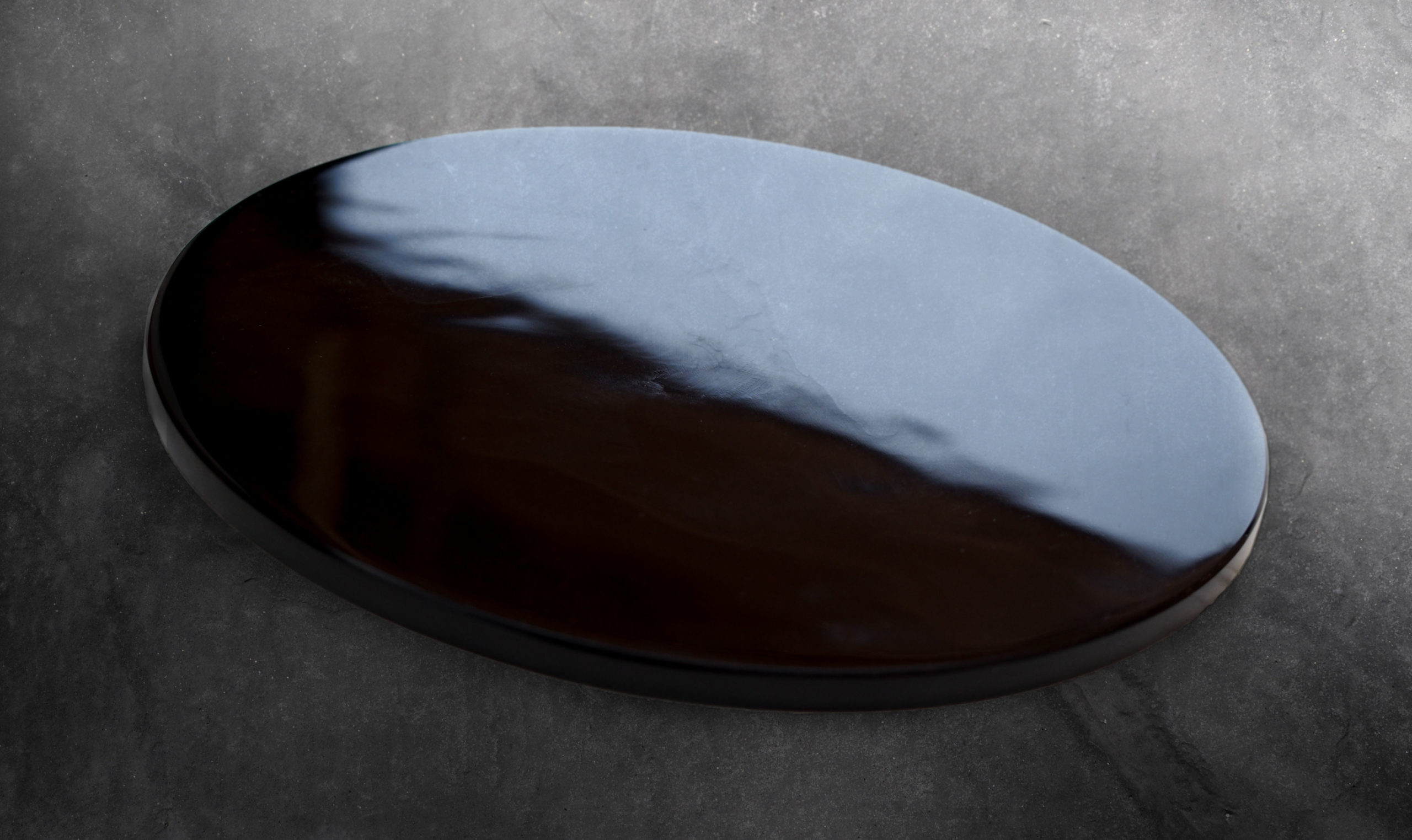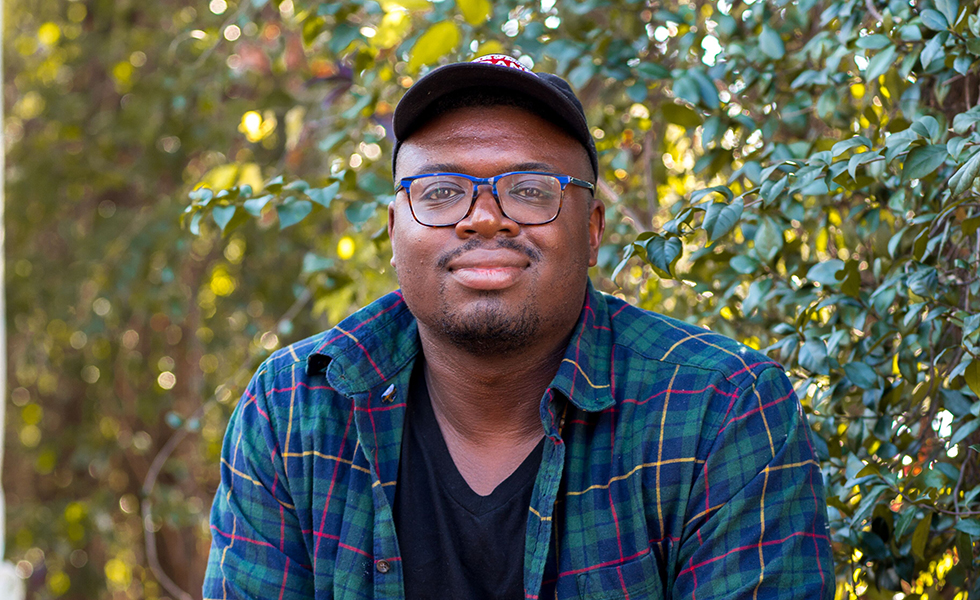
Short Story Finalist “Birth and Afterbirth”
Today we publish the fourth and final finalist of The Texas Observer’s 2013 short story contest, judged by Dagoberto Gilb. Throughout September we’ve been publishing the contest’s finalists, one per week, leading up to the winning story, which will appear in the Observer’s October Books Issue and online early next month, along with a roll call of honorable-mention entries. In case you missed them, our first finalist was Dini Karasik’s story “Amalia on the Border”; the second was “Fire in Galveston,” by Ken Wheatcroft-Pardue; and the third was “Three Stories of Prosperity” from Dinah Cox.
This week’s finalist is Belinda Acosta’s “Birth and Afterbirth,” a gripping and graphic narrative about fear, alienation, and identity.
Birth and Afterbirth
Belinda Acosta
4:32a.m. ¡Pendeja! No one told her to push me out. No one told her to play Pandora. Does she think hope is going to fly out next from down there? I was fine, quietly eating her up. But now I’m outside her, hot and slick from hiding deep inside. I came from the squishy place between her legs, slid down the tub and stopped at the drain. The faucet drips in my ear. There’s no umbilical cord to connect us but I’ve come from her. It’s true.
She hangs her head over the edge of the tub and rakes her fingers through her damp hair, then finally lifts her head to take a look. She can’t decide what horrifies her more: The approximation of a face pressed into my translucent head? The crimped nose? The colorless lips? I can see she’s horrified because my eyes are open and see everything, though it shouldn’t be possible. Nothing about me should be possible.
She takes in my puny arms and twisted stumps of legs, my waxy torso crooked to the left. The ribs are visible and beneath them is my heart, a fleshy dab that looks as if it was squeezed from a tube. It shudders so frantically, tears bloom in her eyes. She looks at me and wonders if she’s crazy. I look back at her. We both know she’s not.
•
5:05a.m. She covers me with a sheet. (Is that any way to treat me, after all this time we’ve been together?) Her innards groan and worry buzzes in her head.
She once watched a midwife deliver a baby, then massage the mother’s belly to loosen the placenta. When it came the midwife examined it to make sure it was whole. Nothing of me can be left behind, she thinks, fretfully kneading her abdomen. She stuffs a towel between her legs, pulls her black hair into a chongo, then limps into the kitchen. The dogs hover near her bare legs, two saggy-faced mutts built for hunting but serving no other purpose than to eat, shit, and bark when they sense something out of the ordinary. She shoos the dogs onto the porch. They yap at the screen door but finally hunker down, jowls drooping over their dusty paws, eyes wide.
When she finally decides to touch me, she’s surprised by my weight. My head is heavy in her hand. She sees that it would be easy to poke her thumbnail through my scalp, hot and tight like a blister, and drain the murky fluid inside. But she’s careful with me, sets me on the kitchen table, naked on the sheet like brisket on butcher paper, and she sits down and wonders.
The obvious explanations don’t work. She hasn’t been with a man since she came from Omaha to her grandmother’s house here in South Texas. La Miss Pensive Pendeja was sent here to do the business of tilling under the debris of a life lived too long. (The rest of the world calls her Paulina, but she’ll always be La Pendeja to me.) She came to Texas a few months after they’d cut her open. The cyst they took from her was unusual, made of hair, bone and teeth. A scrambled baby. The doctor said it was a twin that never developed. It twisted Paulina’s head, thinking about this other version of herself, carried unknown to her until it started its shapeless, fanatic growth. It had eaten both ovaries before it was finally detected, and by then it was too late. Pobrecita Paulina. No mess of Meskin kids for her. She thought of herself as a freak, even before the cyst-twin came. She thought it way back when she was just a little Meskin girl among the sea of blond faces, bullied by doubts that made her little lip quiver. And when the day finally came when she dryly thought, “Maybe I am stupid, maybe I don’t belong here, maybe I am crazy,” it was my doing to turn “Maybe” into “Yes.”
I want her to think that now. But it’s not working with me outside her like this.
•
6:40a.m. Sunlight creeps under her eyelids and she blinks. She wishes there were some neighbors close by, but there is no one. It’s just her and the dogs and me. Isolation never used to scare her. She learned to hide in it when she got tired of trying to make sense of herself in the world. She closes her eyes and drifts toward sleep, but the gurgling in my throat startles her. She sits up and goes to change the sodden towel between her legs. The blood that comes from her is black and smells like pennies.
Paulina hopes Minga will come over after work. Before she came to Texas, they only knew each other through snapshots exchanged between her mother and Minga’s mother, the comadre Paulina’s mother stopped talking to for some long-forgotten offense. Year after year, when the photos of Minga came, Paulina’s mother mumbled dour words about the “muddy-skinned girl,” and threw the photos in a drawer. When Paulina and Minga met in person, they liked each other right away and treated each other like newly discovered family.
Paulina knows the breakfast rush at the Blanco Street Café will peak soon. Since she’s not there, Minga will have to cover for her. She’ll come over later, tired, pissed, and worried.
“Hijole, girl! We got slammed! Where were you?” Paulina imagines Minga asking.
Minga likes to smoke on the porch and talk like she’s got something to say. She’s the kind of girl Paulina’s mother called “low class.” When Paulina remembers this, an ache coils tight, then tighter, in her belly and she moans. The dogs raise their heads. I gurgle and foam spills from my mouth. To calm herself she thinks about work. One packet of coffee into the brew basket, crumble five sticks of canela over the grounds. Flip the red button up, then down, then up again to start the brewing. Bang it on the side if nothing happens, but not too hard or Señora Tafolla will fuss and the customers at the counter will snicker. The pain fades. Paulina thinks about how she enjoys serving coffee and breakfast tacos to the viejitos, especially the ones who knew her mother and grandmother. And to think la señora almost didn’t hire her:
“What do you want with a job like this when you’ve got an education from up there in Minnesota?”
“Nebraska.”
“Nebraska! Who heard of Mexicanos in Nebraska?”
A freak, I reminded her. You’re nothing but a freak, even here among your so-called raza.
“I need the money while I figure out what to do with my grandma’s house,” Paulina explained.
“Bueno, but only because tú abuela was my comadre. Que en paz descanse.”
Paulina knew word for word what her mother would say when she told her what she’d done.
“A job? Are you crazy? I told you to sell the house and come right back!”
“I like it here. Everyone remembers you.”
“Who, everyone?”
“Señora Tafolla…”
“Josefina Tafolla? She’s still alive?” her mother scoffs, even though they’re the same age.
“She’s my boss.”
“You’re selling tacos from the back of a truck?”
“She owns a restaurant now,” Paulina explained. “It’s always crowded.”
“It doesn’t take much to sell tacos to Mexicans,” her mother said.
“Well, she says nice things about you.”
That’s when I should have noticed things were changing. How I was loosening inside of her like an old scab.
“’Amá, why do you talk like that about the people here?” Paulina asked. She surprised herself, as well as her mother, who had never been asked to explain herself before and had no plans to start.
“Just get rid of the house and get out of there, Paulina. Come back where you belong.”
•
The dogs see my color change to a cold grey-blue. They leap on their hind legs and tear at the screen door. Their nails dragging on the mesh makes Paulina cringe, like when Minga drops her cigarette butts onto the porch or the way she talks sometimes.
“Girlfriend, you don’t know. In Tejas, you’re just another Mexican, pero up there…” Minga drew her thoughts through her cigarette then blew them fiercely over her shoulder. “Whatever you do, don’t get mixed up with some cabrón from down here.”
I could tell Minga had been eaten up inside for a good, long time.
“Your mother was smart to get out of here.”
“My father is from here, too,” Paulina said.
“Well, then, your mother must have taken the last good Mexicano because there aren’t any left that I can see.”
•
10:17 a.m. Paulina looks out to the road that runs from the house into the brush and away. The pain she feels from where I was attached comes and goes, and each time it comes, it plows deeper, then throbs in waves over her body. She thinks about driving herself into town, but doubts she can make it. The dogs are two heaps of fur. She wishes they would figure out how to drive the truck—one could work the stick shift and floor pedals and the other could steer, like in an old Disney movie where she would be Hayley Mills. She imagines the dogs careening into town, screeching to a stop inches from the Blanco Street Café window, wildly barking and honking the horn in front of that viejo Loya. He likes animals more than people and everyone knows not to make conversation with him before he’s had coffee. But the dogs are so crazy, Paulina imagines the other customers pulling el viejo to the truck.
“¡Ándale, señor! Qué quieren?”
“No sé!”
“¿Por qué ‘no sé’? You got all them dogs, don’t you? You know their ways, no?”
“No sé! These dogs aren’t Mexican!”
Paulina would laugh but the pain inside makes her nauseous.
•
11:22 a.m. The dogs suddenly leap up, barking wildly and prancing around each other.
“What is it? Is Minga here?” Paulina asks. She looks out the screen door, but sees only cactus, mesquite, and silence. Then she remembers: It’s Minga’s day off. She won’t miss her.
Damn.
The mutts keep crazy-yelping, over what, she doesn’t know. She shushes them but it’s no use.
“Oyes, you better listen to them,” Minga said another time the dogs were excited over something they couldn’t see. “You don’t know what they’re trying to tell you. You heard what they say about the Chupacabra.”
“The what?”
“The Chupacabra, girl! It comes around at night and sucks you dry like a vampire; only it looks like a goat and stands up asi. Out here, I’d sleep with the windows closed. I’m telling you…”
Minga lit another cigarette as Paulina looked at her broad face, a deeper, duller brown than hers, sagging with age, even though Minga is eight years younger.
“You don’t really believe in the Chupacabra, do you?”
“There are lots of things you can’t see that will kill you,” Minga said, letting the idea hang there a moment before scoffing. “Ay! Don’t listen to me! I only know what I know.”
•
11:30a.m. Paulina feels something heavy creep through her pelvis. She strips down to her bra and climbs back into the tub, her back flat against the sloped end, legs splayed up and over each side. The tub is brilliant white against her clay-brown skin, skin that tortured her mother with how dark it would get each summer. Skin that her mother covered in ruffled, long-sleeved blouses buttoned up to her throat. Paulina looks at herself in the tub now and nearly laughs out loud. If this is how her body is found—bloody, brown, and half-naked in her grandmother’s bathtub—her mother will have a stroke. Paulina imagines Minga introducing herself when her mother comes to claim the body. She sees her mother pause her grief long enough to evaluate Minga, sneering at the jeans that show off her ripe nalgas and the chi chis straining the buttons of her blouse.
“Who did this to my daughter?” Paulina hears her mother demanding. The question makes her wince, but she knows Minga already knows how to handle the interrogation without missing a beat:
“If you ask me, señora, I think it was the Chupacabra.”
•
11:47a.m. Now awake and angry at this pain that sticks inside her, she grinds her fist into her belly and hunches forward until, finally, the afterbirth comes: jaundiced and speckled like an overripe banana releasing a bitter stench that smells like shame. She is disgusted but happy to get this thing out of her. She wraps it in newspaper then cleans the tub and takes a long, hot shower. Clean and wearing a simple dress that caresses her shape—arms, legs, and shoulders bare—she comes to look at me. How harmless I seem, small and helpless. But she has no pity for me; only regret that she carried me for so long. She goes through the house and opens all the windows. The pangs in her belly have faded. Her whole body feels fit. She goes outside for a spade, finds a spot, and begins to dig. The dogs help her, madly pulling at the dirt with their paws. She puts the afterbirth in the hole and for the first time, I’m worried.
In some cultures, the placenta is buried as an offering to the earth, or eaten. This is what I need Paulina to do now. Eat the placenta that fed me, which in turn fed her. I don’t care that she won’t stand the taste, or that each bite is worse than the one before it. I need her to feed. I need her to feed those fears that lurked in her heart, dulled her passions, and finally, finally, made that image she saw in her mirror loathsome. But that’s not what she does. Paulina sets the afterbirth on fire then comes for me. I’ve lost my weight. The fluid in my head has evaporated, my bones gone hollow, the mucus turned crystalline. She holds me over the fire and crushes me between her hands. The shell of my former self falls into the fire, the pieces crackle and pop. The dogs are dumb witnesses, sitting on their haunches, watching me burn.
The sun is high in the sky when the fire is ablaze, but Paulina ignores the heat. When the fire has nearly burned to ash she looks at the dogs, so serious in their roles as sentries. When they notice her eyes on them, they draw their jowls into goofy doggie smiles. She smiles back, then douses what remains of the fire with fresh dirt.
“Vamos,” she says. The dogs follow her to the pickup and happily leap into the truck bed. Paulina closes the gate with an assured clank, then climbs into the cab and drives into town to look for Minga.


